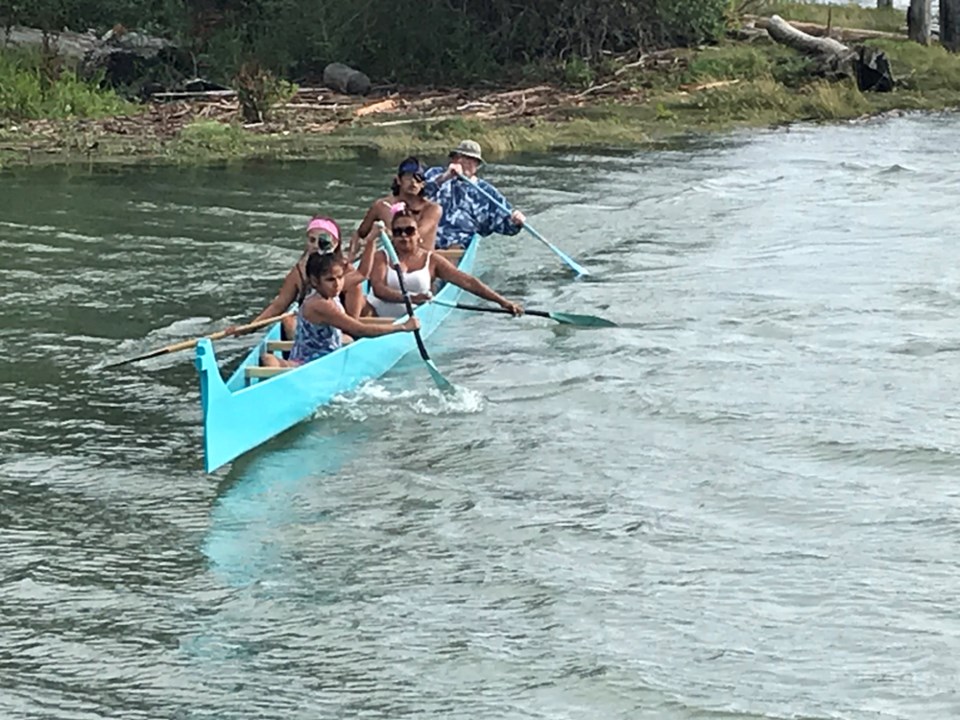The new, robin's egg blue canoe has been welcomed home to Squamish.
Aggie Andrew and Shlomish (Allan) Jim, of Squamish's Mt. Chaki Warriors Canoe Club picked up the canoe from Vancouver on July 21.
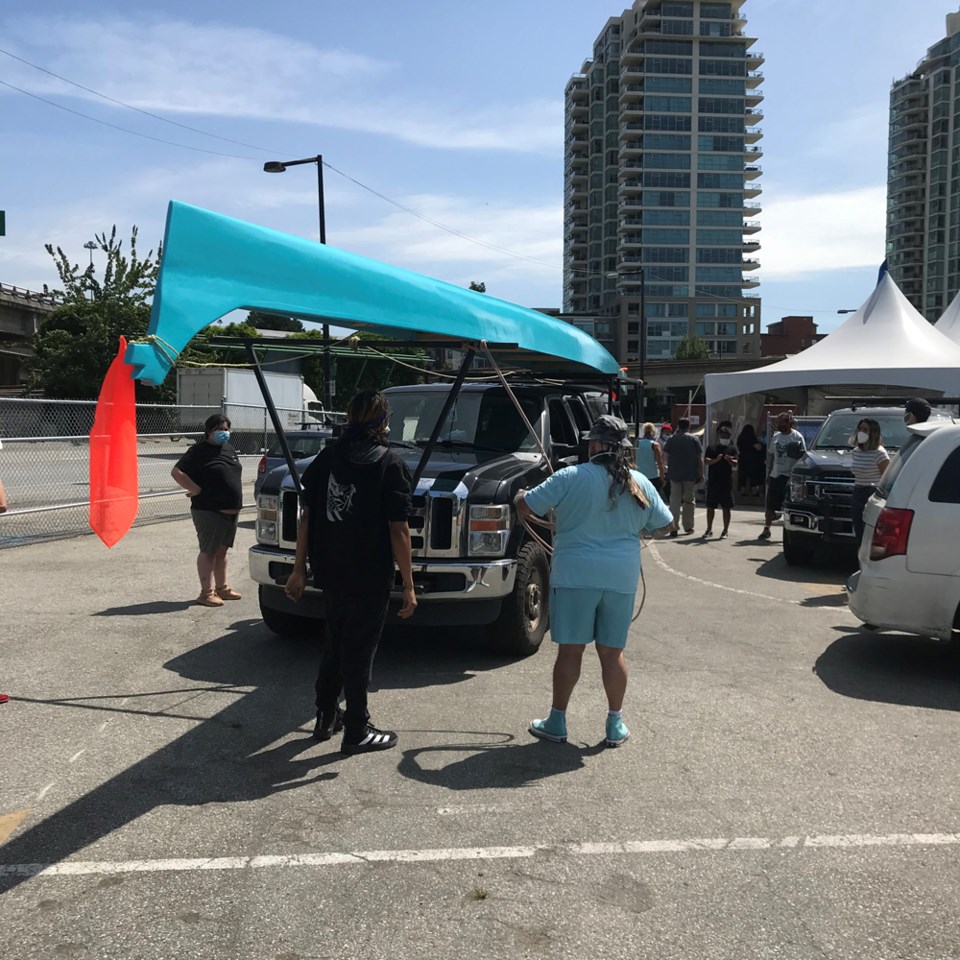
The six-seat canoe is one of three gifted to the Squamish and Musqueam Nations that will be used in the annual canoe race circuit.
The two cedar-strip canoes and one traditional dugout canoe were constructed as part of the Canoe Cultures program.
Over several months, participants in the program learned about the traditional process of canoe carving.
This initiative was funded through government grants and supported through the Western Canada Community Projects Society and developer Concord Pacific,
Cedar from the Squamish canoe came from trees in this area, Aggie Andrew said.
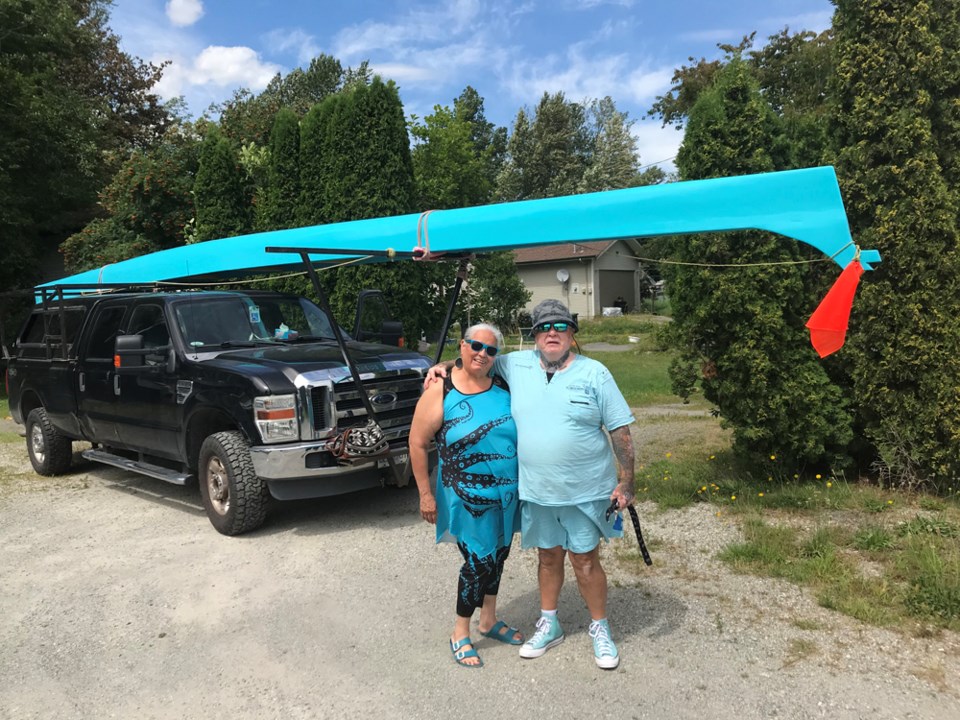
The canoe club members gathered last week and welcomed the watercraft home with songs and ceremony.
"We got some cedar boughs and the little ones, and anyone that was there brushed it off," Andrew said.
It was then launched into the water for a cruise.
"It was very good, good balance," said Jim, who is the skipper of the team and he coaches and steers the canoe. The canoe club kids call him Uncle.
The new canoe doesn’t have its Squamish name yet, but it will eventually be named.
The watercraft joins the club's three 11-person, three six-person, three double canoes, and eight single-person canoes.
The Squamish Mt. Chaki Warriors Canoe Club — its name is the Squamish name for what settlers called Mount Garibaldi — started in 2000.
At that time, they had no canoes of their own but instead borrowed one from the Lewis family.
While traditional canoes were dug out of a log, these days most are made of cedar strips.
The dugout canoes are much heavier to carry, too, Andrew said.
[The 11-person canoes can cost $10,000, six-person canoes run about $8,000, and a single-seat goes for about $3,000.]
Back then, most of the members were teenagers. These days, the members are their young children.
"We are teaching the second generation of some of the first batch that we taught," said Aggie.
With the pandemic, the season was called off, but, usually, they usually race from May to August, travelling every weekend to various competitions on Vancouver Island, in the Fraser Valley and in the U.S. down to Neah Bay in Washington State.
"It is a full season usually," Aggie said.
"Everybody is missing it."
The club has gotten together a few times just to train or keep in touch.
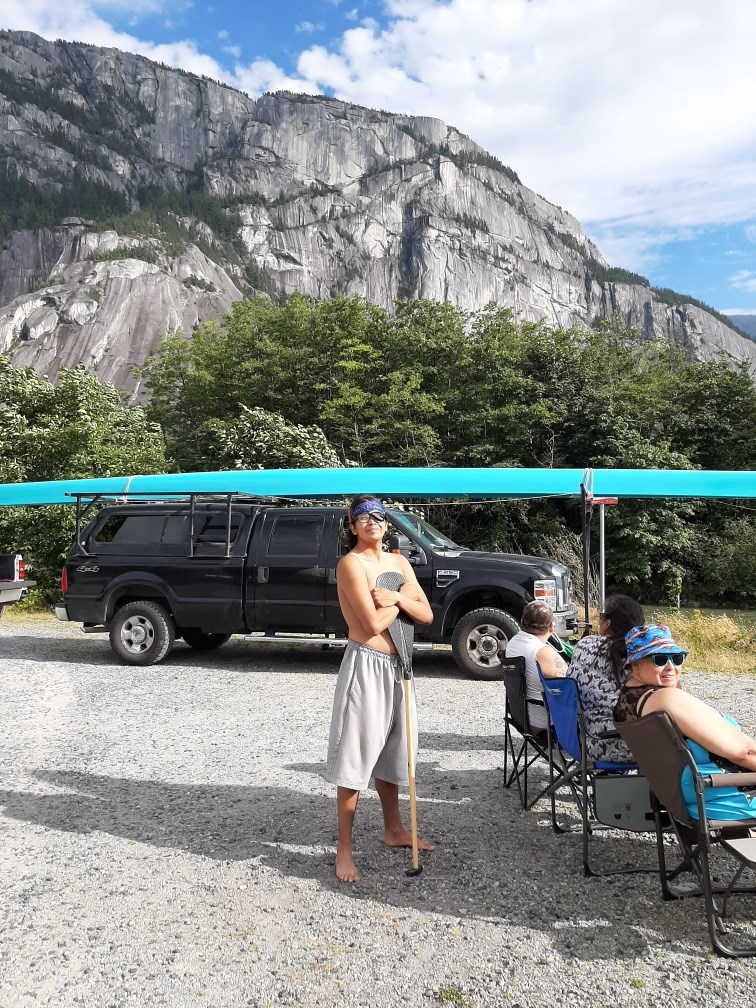
"All the kids that we've taught, they get a sense of belonging through the canoe club," she said. "They have that sense of family and belonging and it heals them. It is a really powerful thing. That is why we have so much passion for [canoe racing] because we believe in it and how it helped us and now it is continuing on."
Learning to paddle is an important way to pass on culture and tradition, Andrew said.
"They have been racing canoes for over 150 years. They call them war canoe racing because, before that, there were wars between tribes, and when that stopped they decided to have these races to compete," said Andrew, who started racing herself when she was 12. Her husband started when he was 20, and his team was champions for seven years in Cowichan, where he is from.
"It really takes a lot of discipline and commitment because it is every day, training."
Youth in the club are expected to paddle for an hour at a time or more, sometimes dragging buckets for weight.
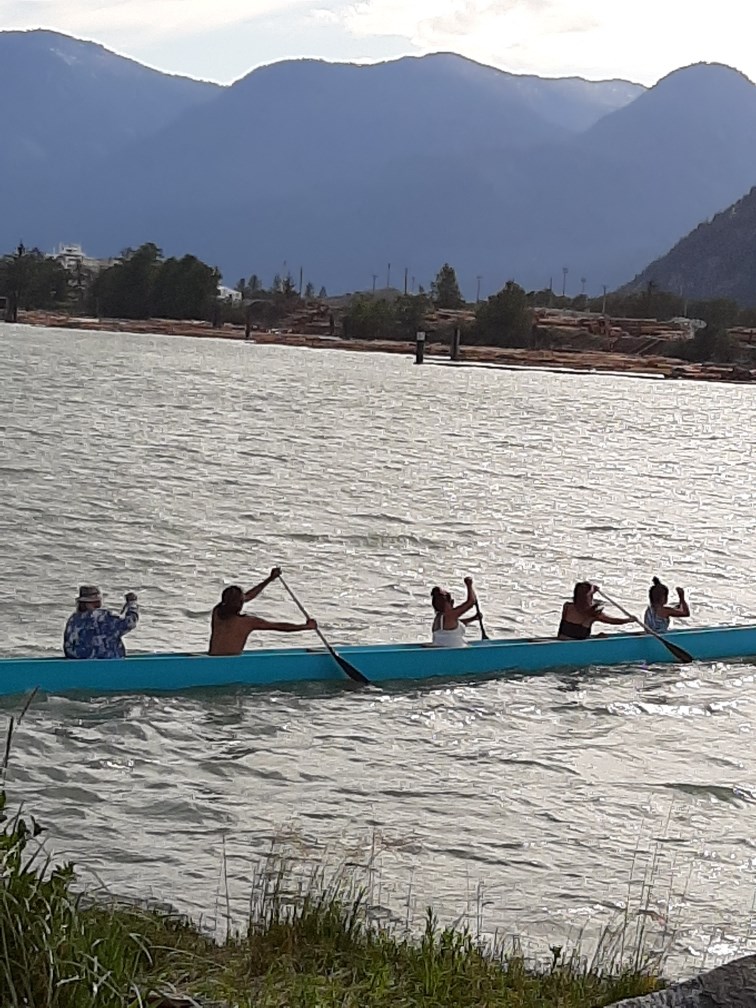
They run about five miles, follow a strict diet, and no smoking, drinking, or alcohol is allowed.
"The way we teach is we involve our culture. They get up at 5 a.m. and go for their bath up in the mountains and the creeks. They get their cedar boughs and come back down and go back in the canoe and brush it off in the ocean."
The brushing keeps the canoe spiritually clean and light.
"Because you are praying and taking the negative off of your spirit. The canoe absorbs all your feelings — any anger or negativity — and it will flip if you don't take care of it and don't take care of yourself."
~With files from Ben Bengtson/ North Shore News
**Please note, this story has been corrected since it was originally posted to say that Shlomish's last name is Jim, not Andrew.
